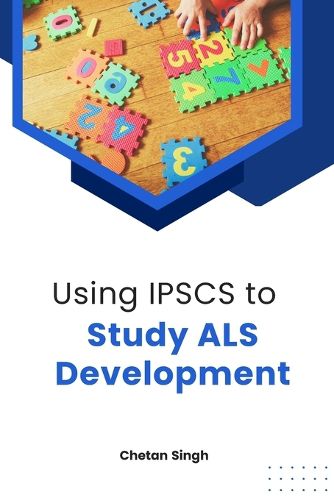Readings Newsletter
Become a Readings Member to make your shopping experience even easier.
Sign in or sign up for free!
You’re not far away from qualifying for FREE standard shipping within Australia
You’ve qualified for FREE standard shipping within Australia
The cart is loading…






This title is printed to order. This book may have been self-published. If so, we cannot guarantee the quality of the content. In the main most books will have gone through the editing process however some may not. We therefore suggest that you be aware of this before ordering this book. If in doubt check either the author or publisher’s details as we are unable to accept any returns unless they are faulty. Please contact us if you have any questions.
The book provides a thorough understanding of iPSC technology, its advantages, and its potential for modeling ALS, which is a complex and devastating neurodegenerative disorder affecting the motor neurons. The author explains the use of iPSCs as a tool to generate disease-specific models for ALS and how these models can aid in the identification of novel biomarkers, drug targets, and potential therapies for ALS. Furthermore, the book highlights the role of early developmental stages in ALS pathogenesis and the potential of iPSCs in studying this association. The author provides a detailed overview of the current knowledge of ALS development and the latest advancements in iPSC technology that have led to the generation of patient-specific motor neurons and astrocytes. The book is an excellent resource for researchers, clinicians, and students who are interested in understanding the molecular mechanisms of ALS and the potential of iPSCs in developing effective therapies for this debilitating disease. With its clear and concise language and comprehensive coverage of the topic, "Using iPSCs to study ALS development" is an essential read for anyone seeking to deepen their understanding of this complex disorder.
$9.00 standard shipping within Australia
FREE standard shipping within Australia for orders over $100.00
Express & International shipping calculated at checkout
This title is printed to order. This book may have been self-published. If so, we cannot guarantee the quality of the content. In the main most books will have gone through the editing process however some may not. We therefore suggest that you be aware of this before ordering this book. If in doubt check either the author or publisher’s details as we are unable to accept any returns unless they are faulty. Please contact us if you have any questions.
The book provides a thorough understanding of iPSC technology, its advantages, and its potential for modeling ALS, which is a complex and devastating neurodegenerative disorder affecting the motor neurons. The author explains the use of iPSCs as a tool to generate disease-specific models for ALS and how these models can aid in the identification of novel biomarkers, drug targets, and potential therapies for ALS. Furthermore, the book highlights the role of early developmental stages in ALS pathogenesis and the potential of iPSCs in studying this association. The author provides a detailed overview of the current knowledge of ALS development and the latest advancements in iPSC technology that have led to the generation of patient-specific motor neurons and astrocytes. The book is an excellent resource for researchers, clinicians, and students who are interested in understanding the molecular mechanisms of ALS and the potential of iPSCs in developing effective therapies for this debilitating disease. With its clear and concise language and comprehensive coverage of the topic, "Using iPSCs to study ALS development" is an essential read for anyone seeking to deepen their understanding of this complex disorder.